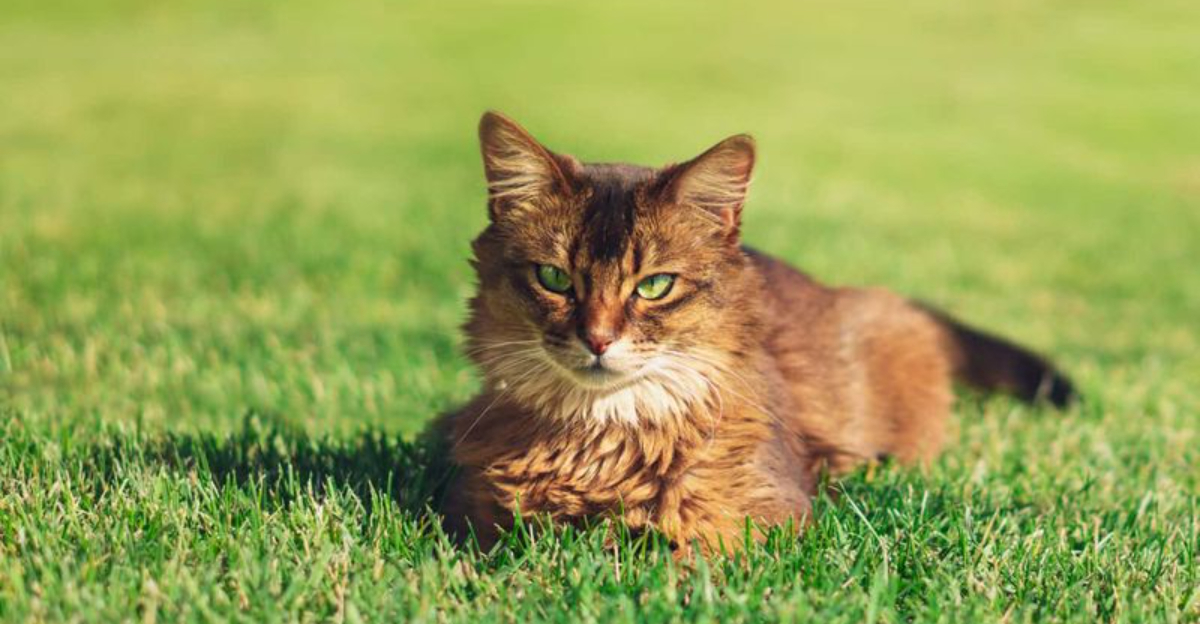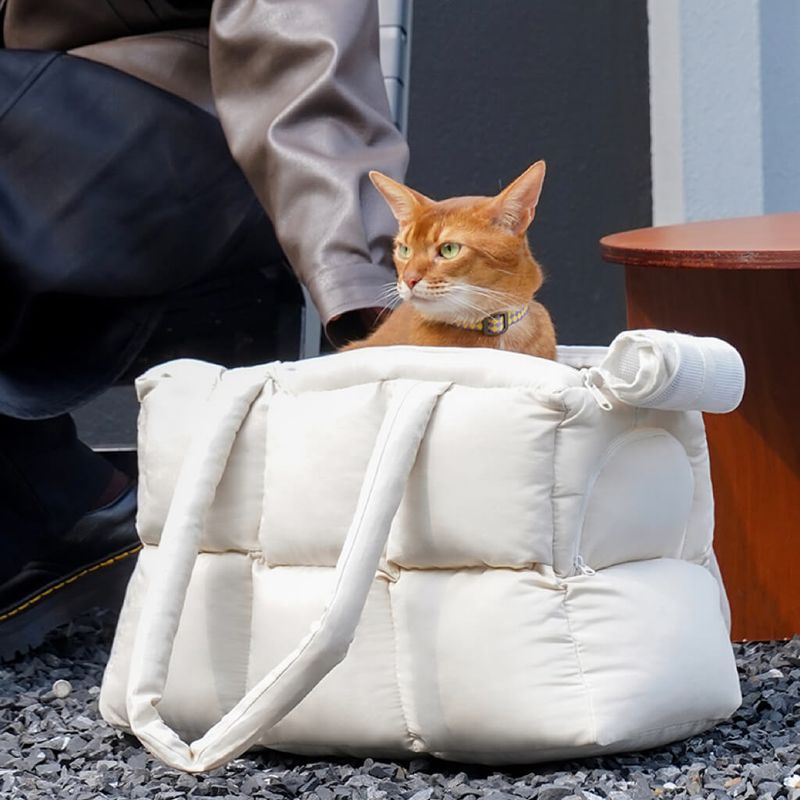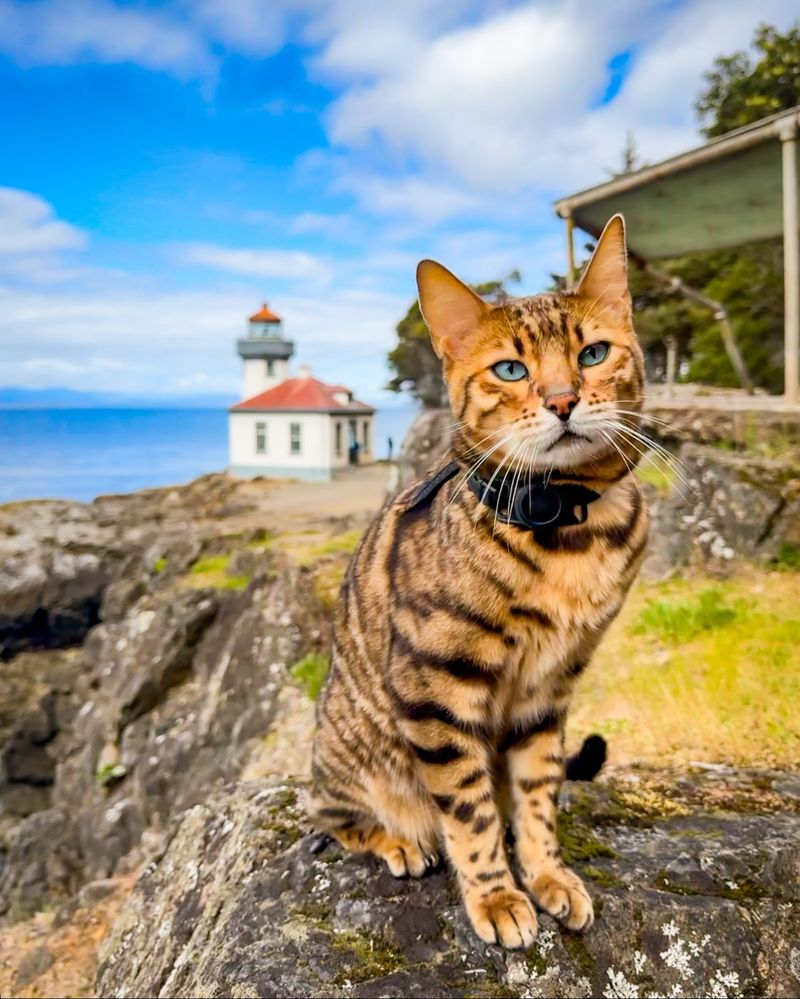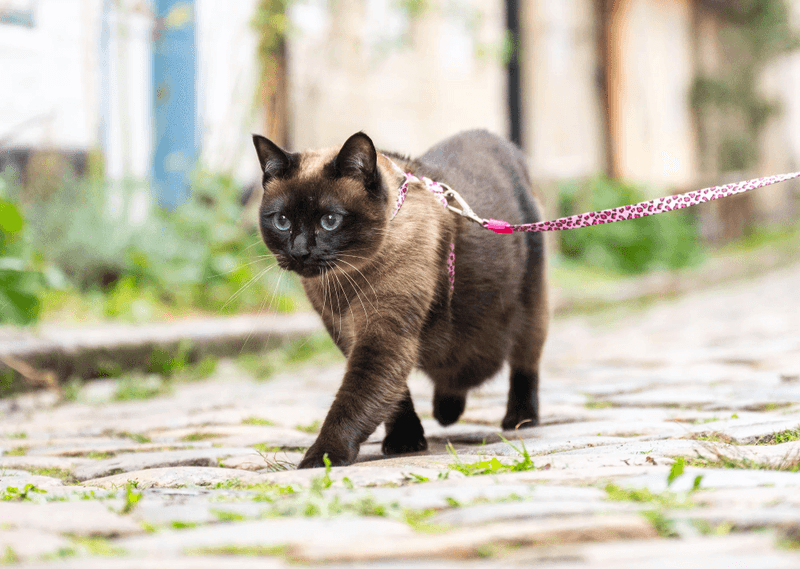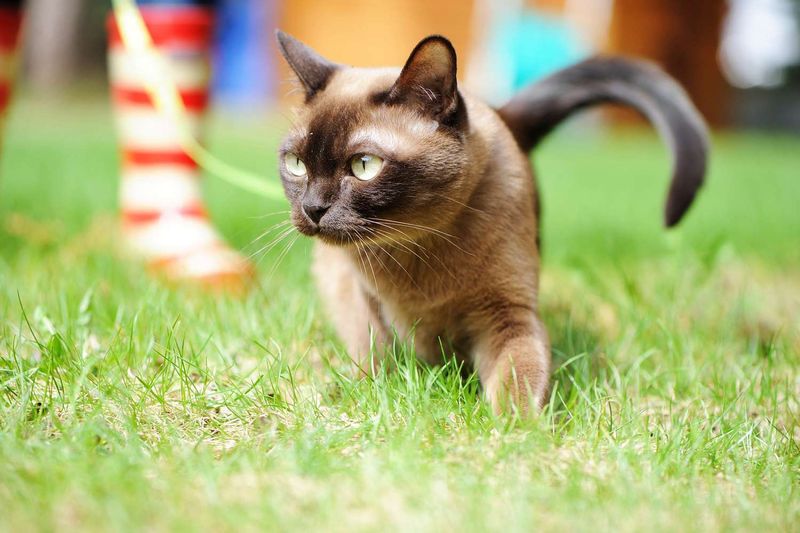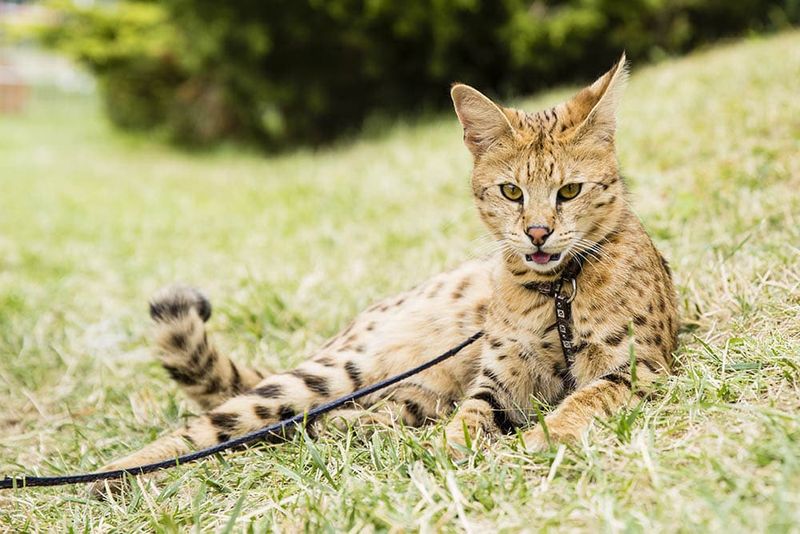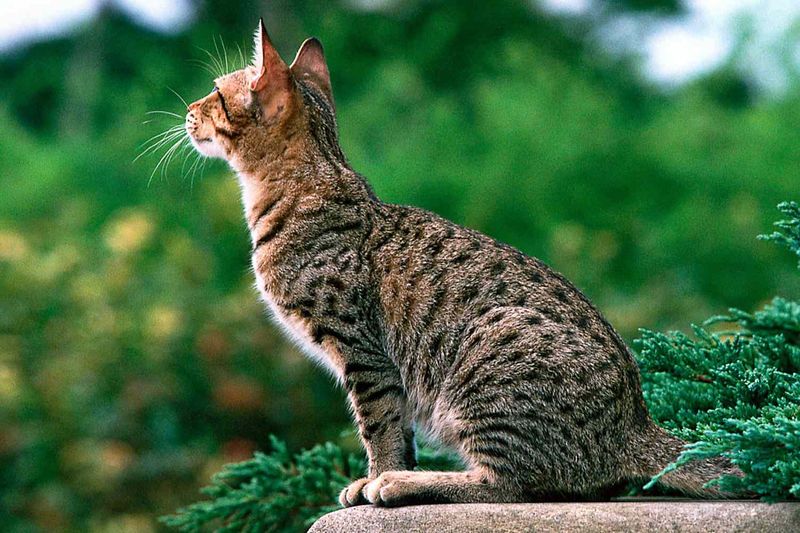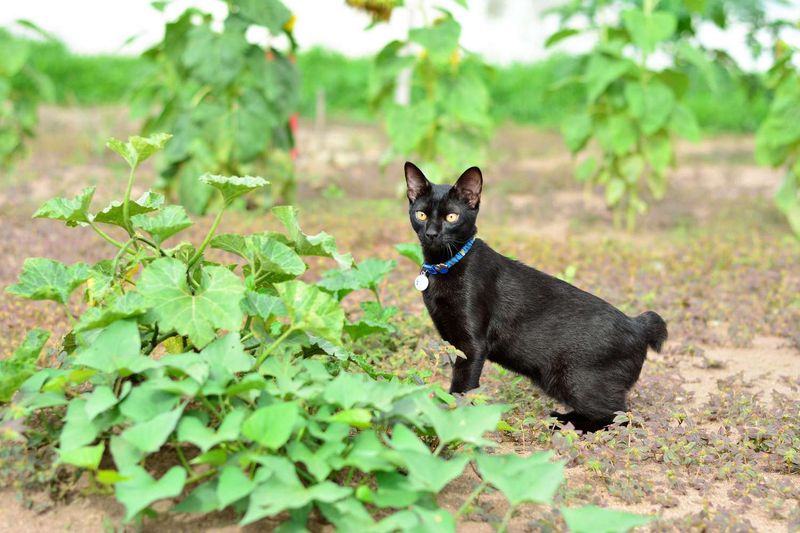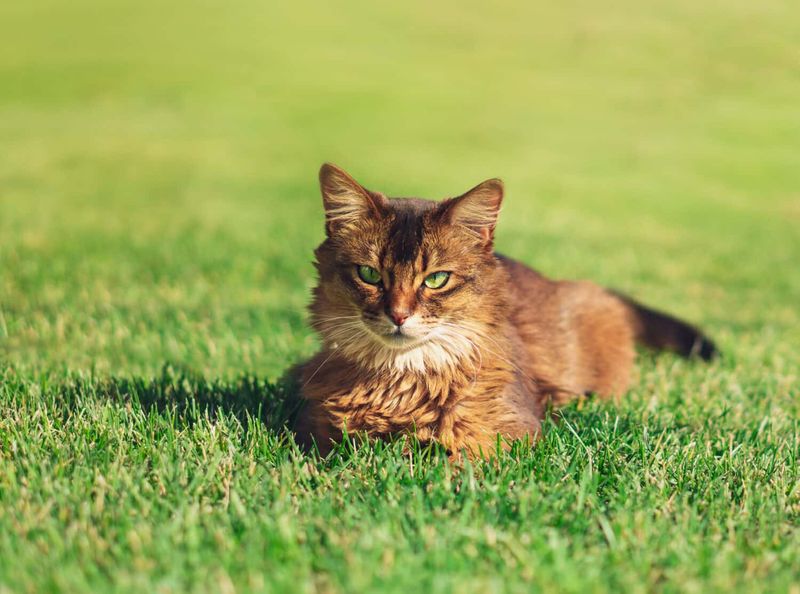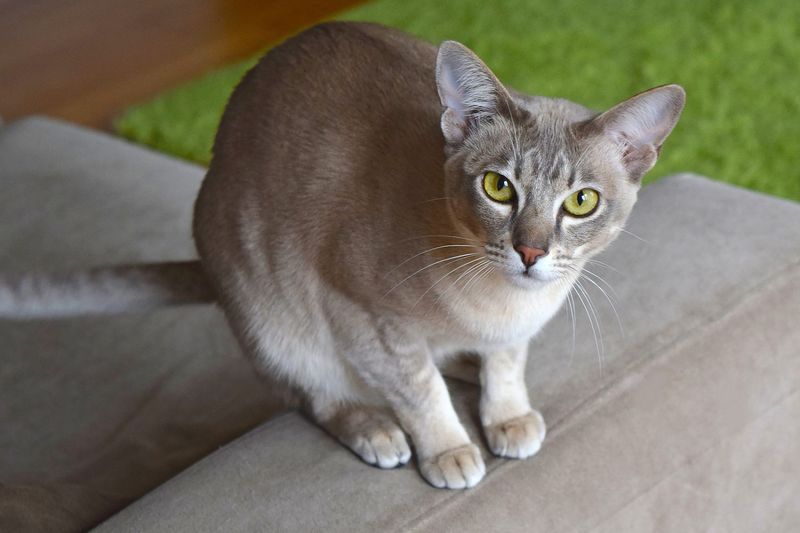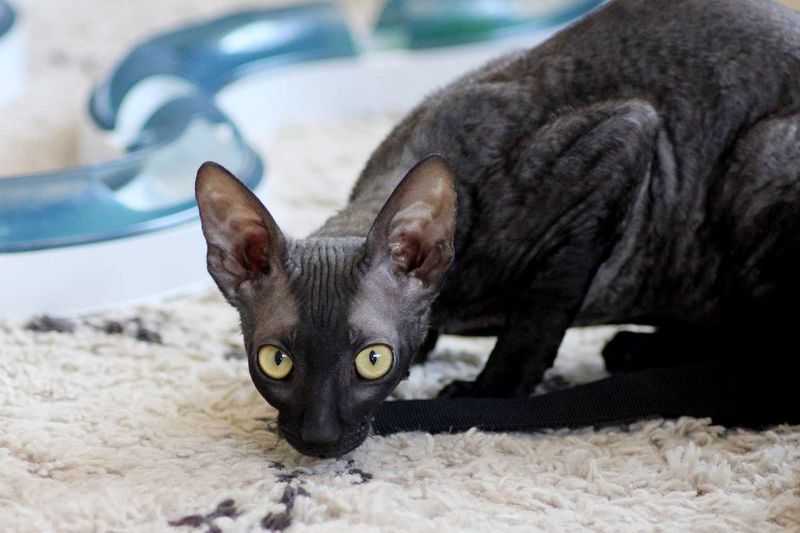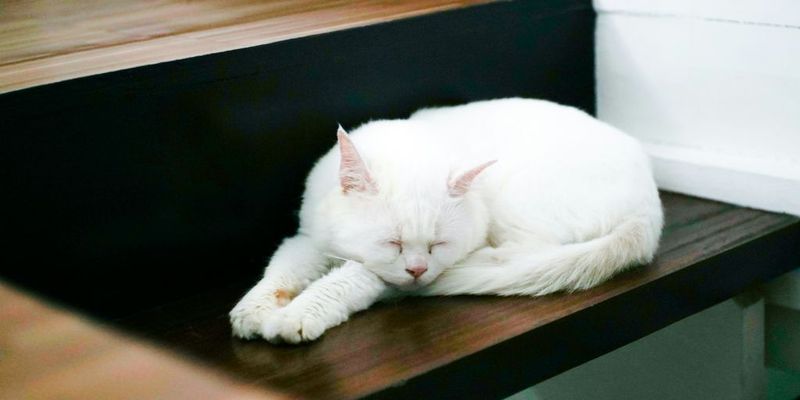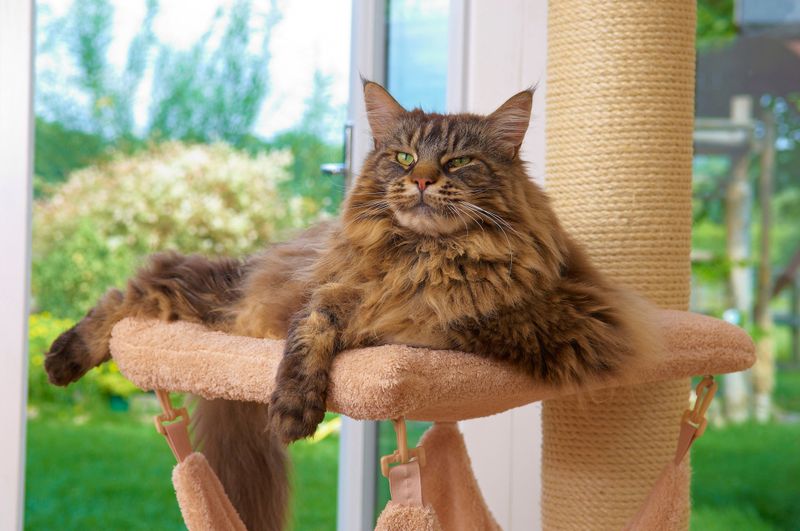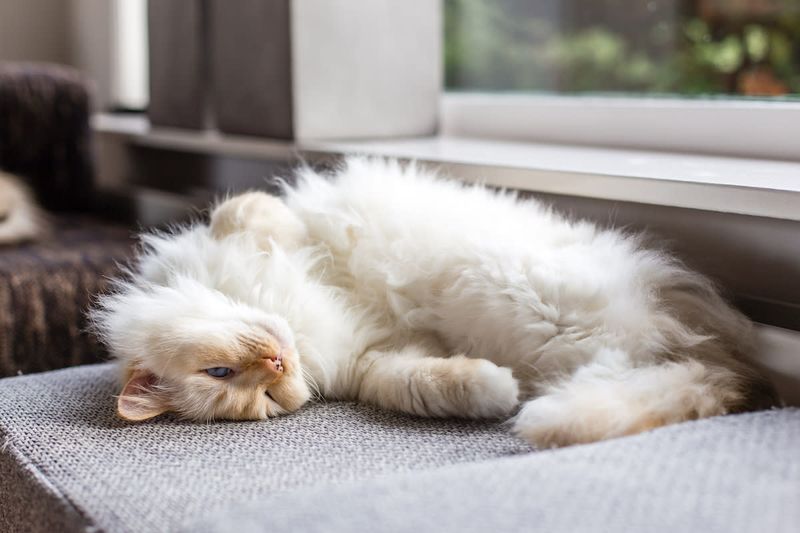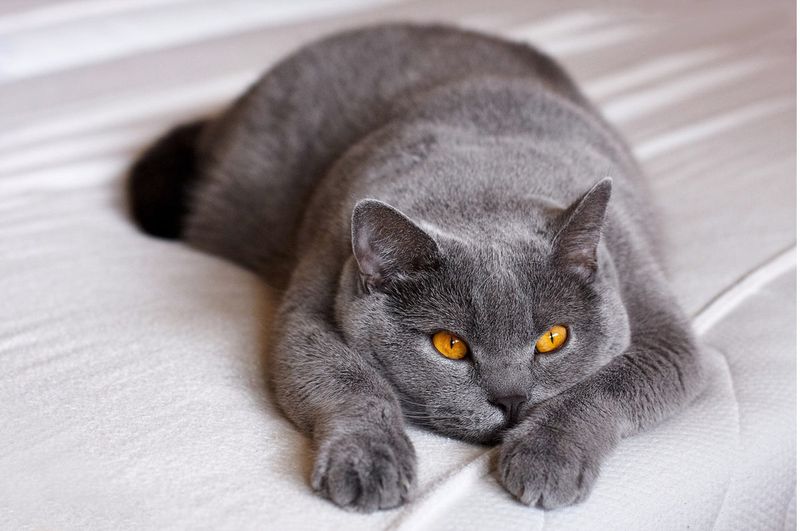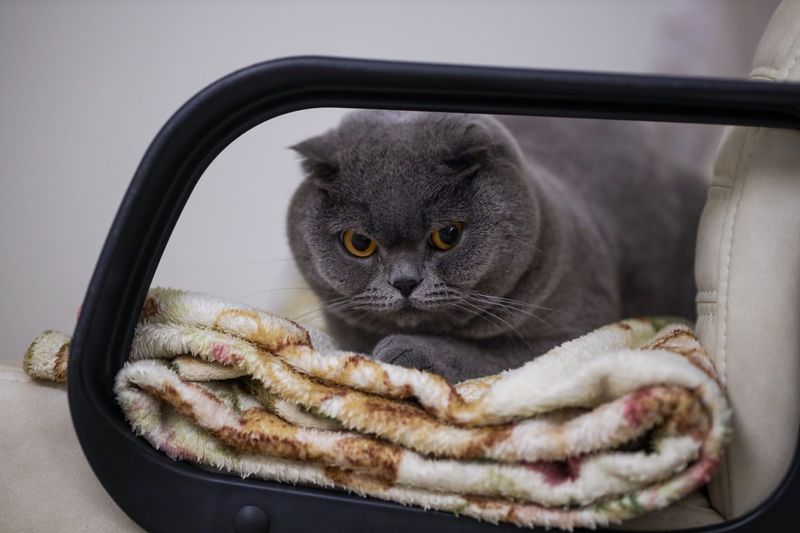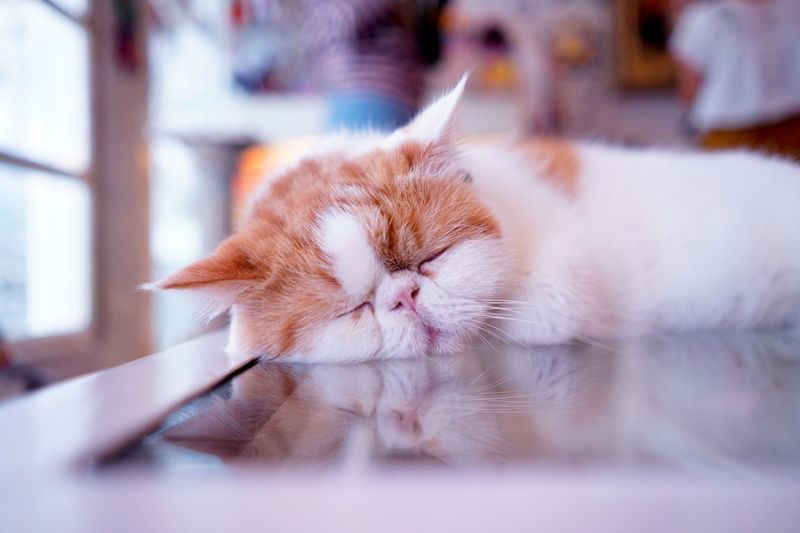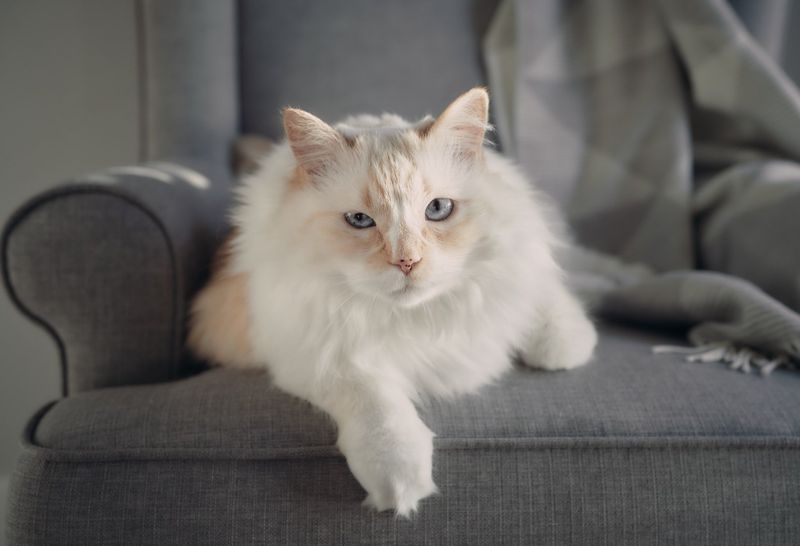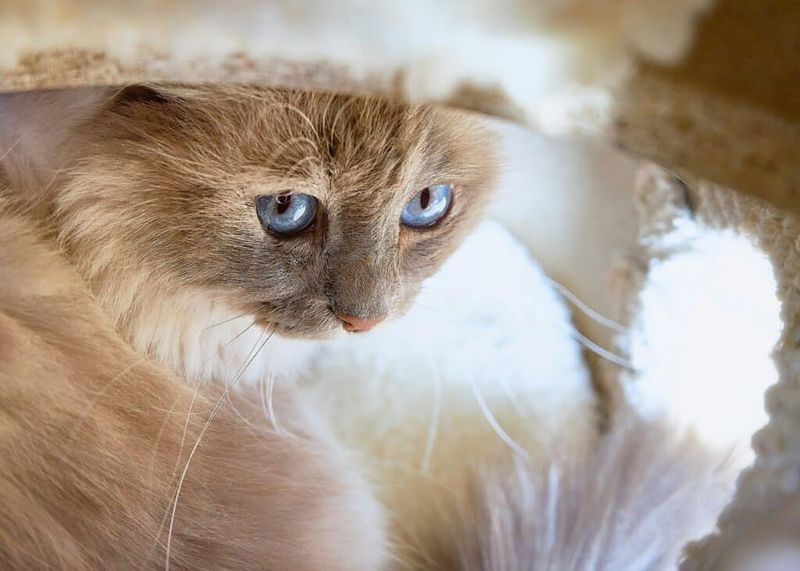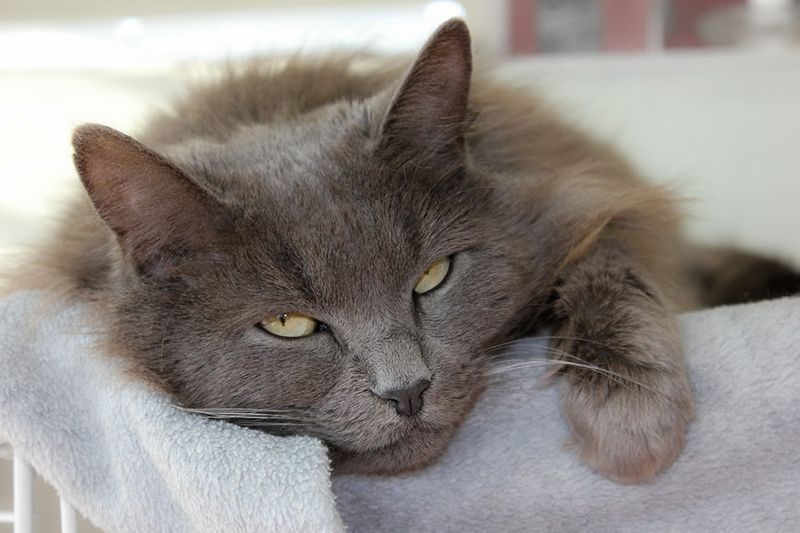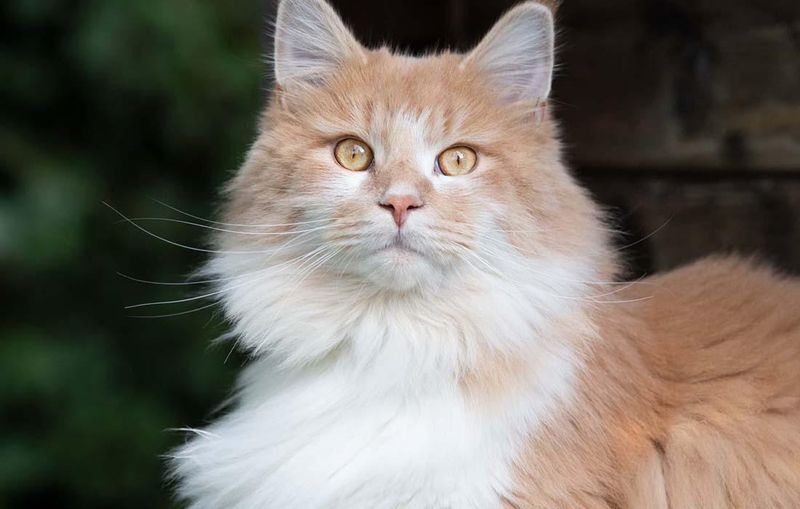📖 Table of Content:
Cats exhibit a wide range of personalities that influence how they respond to unfamiliar environments. Some are adventurous by nature, embracing travel and new places with ease. Others find comfort in routine and familiar surroundings, often becoming anxious when faced with change.
The way a cat adapts to new situations depends largely on its individual temperament. Recognizing these differences is important for ensuring their well-being during transitions. Stress levels can vary greatly based on how a cat’s personality aligns with changes in the environment.
Awareness of a cat’s personality helps guide decisions about travel and lifestyle adjustments. Choosing options that suit their temperament can reduce anxiety and improve overall comfort. This understanding supports a happier, healthier life for both cat and caregiver.
1. Abyssinian
Abyssinians thrive on adventure and new experiences. Their curious nature makes them excellent travel companions who adapt quickly to different environments.
These active cats enjoy exploring hotel rooms and taking in new sights from their carrier windows. They recover quickly from the stress of travel and maintain their playful demeanor throughout journeys.
Abyssinians form strong bonds with their owners rather than with places, making them comfortable wherever their human companions are. Their intelligence allows them to learn travel routines and adjust to changing situations with minimal anxiety.
2. Bengal
With their adventurous instincts, Bengals are naturally suited for exploring new places. Their lineage from wild ancestors gives them a strong resilience to change.
These energetic cats actually enjoy the stimulation of travel, finding the changing scenery mentally engaging. Many Bengal owners report their cats watching out windows during car rides or exploring new hotel rooms with enthusiasm.
Their high intelligence helps them adjust to temporary living situations without becoming overly stressed. Bengals can learn to walk on leashes, making pit stops during travel possible and providing necessary exercise during trips.
3. Siamese
Rather than bonding with a particular location, Siamese cats form powerful connections with their owners. This people-centered nature helps them adapt easily to new environments as long as their trusted humans are near.
Their vocal nature actually helps during travel—they’ll let you know exactly what they need! Siamese typically adjust to hotels and temporary accommodations with minimal fuss after an initial exploration period.
These social butterflies often enjoy meeting new people during travels. Their slender bodies make them comfortable in carriers for longer periods than some bulkier breeds, and they typically maintain good appetites even when away from home.
4. Burmese
Known for their adventurous yet gentle personalities, Burmese cats travel well. Their laid-back attitude enables them to cope with new places calmly.
These social felines typically enjoy car rides once they become accustomed to the carrier. Many Burmese owners note their cats’ curiosity about hotel rooms and temporary accommodations rather than fear.
Their muscular but compact bodies make them comfortable in carriers for reasonable periods. Burmese cats tend to maintain their playful, affectionate behavior even in unfamiliar settings, providing comfort and normalcy during trips.
5. Savannah
Savannah cats inherit their wild ancestor’s adaptability, making them surprisingly good travelers. Their athletic build and high energy levels mean they recover quickly from the stress of travel and need exploration time at destinations.
Many Savannah owners successfully train these intelligent cats to walk on leashes, allowing for outdoor adventures during trips. Their curious nature means they typically view new environments as exciting rather than threatening.
Savannahs form strong bonds with their owners and often prefer being with their humans over staying in familiar territory. Their alert personalities help them adjust to changing circumstances, though they appreciate having familiar toys or bedding when traveling.
6. Ocicat
Sporting a wild spotted coat yet a friendly disposition, Ocicats are excellent at adapting to new places. Their domestic nature and social tendencies help them handle travel with ease.
These active cats recover quickly from travel stress and enjoy exploring new surroundings. Their intelligence allows them to learn travel routines like carrier entry and car rides with minimal resistance.
Ocicats form strong bonds with their human families rather than with physical locations. They typically maintain their playful, affectionate behavior even in unfamiliar settings, providing comfort and normalcy during trips.
7. Japanese Bobtail
With roots as temple and ship cats in Japan, Japanese Bobtails have developed a strong adaptability for travel. Their enduring resilience makes them excellent companions on the move.
These active, intelligent cats quickly learn travel routines and adapt to changing environments. Their naturally sociable personalities help them adjust to meeting new people during trips without becoming overly stressed.
Japanese Bobtails maintain their playful, energetic demeanor even in unfamiliar settings. Their moderate size and agile bodies make them comfortable in carriers, and they typically recover quickly from the initial stress of transportation.
8. Somali
Somalis combine the Abyssinian’s adventurous spirit with a luxurious long coat. Their playful, curious nature makes them adaptable travelers who view new environments as opportunities for exploration rather than sources of stress.
These intelligent cats quickly learn travel routines and often enjoy the stimulation of different surroundings. Many Somali owners successfully train their cats to walk on harnesses, allowing for exercise during travel stops.
Somalis form strong bonds with their people rather than places, making them comfortable wherever their human companions are. Their sociable personalities help them adjust to meeting new people during trips, though they appreciate having familiar toys or bedding when away from home.
9. Tonkinese
Combining qualities from both Siamese and Burmese cats, Tonkinese are well-suited for travel. They balance curiosity with calmness, adapting easily to carriers and unfamiliar places.
These social butterflies typically enjoy meeting new people during travels. Many Tonkinese owners report their cats maintaining good appetites and using litter boxes normally even in unfamiliar settings – practical considerations for successful trips.
Tonkinese form strong bonds with their owners rather than with physical locations. Their playful yet gentle personalities help them adjust to temporary accommodations without excessive stress, though they appreciate having a familiar blanket or toy from home.
10. Cornish Rex
With their curious and flexible nature, Cornish Rex cats handle travel well. They love warmth, often curling up in carriers or nestling close to their humans for comfort on the road.
These energetic cats recover quickly from travel stress and maintain their playful personalities even in unfamiliar surroundings. Their small to medium size and light frame make them comfortable in carriers for reasonable periods.
Cornish Rex cats form strong bonds with their people rather than with physical locations. Their sociable, affectionate nature helps them adjust to temporary accommodations as long as their favorite humans are nearby, though they appreciate having familiar bedding to carry their scent.
1. Persian
Persian cats thrive on routine and familiar surroundings. Their laid-back temperament becomes stressed when routines are disrupted by travel, making them happiest as homebodies.
The Persian’s flat face can cause breathing difficulties that may worsen during travel stress. Their long, luxurious coats require consistent grooming that’s difficult to maintain on the road, leading to uncomfortable mats and tangles.
Persians form strong attachments to their home environment, often hiding or showing anxiety when placed in unfamiliar settings. Their quiet, gentle nature makes them perfect companions for a peaceful home life where they can enjoy window-watching and lap time without the disruption of travel.
2. Maine Coon
Deeply attached to their home territory, Maine Coons often find travel challenging—especially since their large frames don’t fit comfortably in typical carriers for extended periods.
These gentle giants establish specific routines at home – favorite perches, sleeping spots, and outdoor viewing areas that provide security and comfort. Removing them from these established patterns often causes stress and anxiety.
Maine Coons typically form strong bonds with multiple family members and other pets, making separation during travel difficult. Their thick, water-resistant coats require regular grooming that’s challenging to maintain while traveling. These magnificent cats thrive best with the stability of home life where their needs for space, routine, and social connections can be consistently met.
3. Ragdoll
With their gentle, laid-back personality, Ragdolls live up to their reputation as homebodies. They feel safest in known environments and become strongly attached to both their territory and daily patterns.
Their large size makes travel carriers confining and uncomfortable for extended periods. Ragdolls typically form deep bonds with all family members and often other pets, creating a social network they miss when traveling.
The Ragdoll’s semi-long coat requires regular grooming that’s difficult to maintain on the road. Their trusting, docile nature makes them vulnerable to stress in unfamiliar situations, causing many to become withdrawn during travel instead of displaying their characteristic loving personality.
4. British Shorthair
These cats are both loving and independent, and British Shorthairs find comfort in the routines and known environments of home, where they often form strong territorial bonds.
These sturdy cats prefer quiet, stable households where they can establish territories with favorite sleeping spots and observation perches. Their reserved personality with strangers makes unfamiliar environments particularly stressful.
British Shorthairs typically form strong bonds with their primary caregiver and familiar family members. Their dense coats require regular grooming that’s difficult to maintain while traveling. These dignified cats appreciate the security of home life where they can maintain their cherished routines without the disruption and uncertainty of travel.
5. Scottish Fold
Scottish Folds develop strong attachments to their home environments where their sweet, adaptable personalities flourish best. Their distinctive folded ears can make them prone to ear infections that may worsen with travel stress.
These affectionate cats establish specific comfort zones at home – favorite perches, sleeping spots, and play areas that provide security. Removing them from these established patterns often causes anxiety.
Scottish Folds typically form strong bonds with their families and familiar surroundings. Their moderate activity level makes them perfect for home life where they can enjoy interactive play sessions followed by relaxation in their favorite spots. These charming cats thrive on the predictability and comfort that only a stable home environment can provide.
6. Exotic Shorthair
Wrapped in plush charm, Exotic Shorthairs bring the Persian’s love of home with the bonus of an easy-care coat. Their mellow, affectionate nature thrives in calm, familiar spaces.
These sweet-natured cats establish strong connections to their home territory and daily routines. Their flat faces can cause breathing difficulties that may worsen during travel stress, making them happiest when they stay home.
Exotic Shorthairs form deep bonds with their primary caregivers and familiar family members. Their moderate activity level makes them perfect companions for a peaceful home life where they can enjoy window-watching, interactive toys, and lap time without the disruption of travel. These teddy-bear cats thrive on stability and consistent care.
7. Himalayan
Himalayans combine the Persian’s love of routine with the Siamese’s sensitivity, creating cats that strongly prefer staying home. Their flat faces can cause breathing difficulties that worsen during travel stress.
These gentle cats establish specific comfort zones at home – favorite perches, sleeping spots, and quiet areas that provide security. Their long, luxurious coats require daily grooming that’s nearly impossible to maintain while traveling.
Himalayans form deep bonds with their primary caregivers and familiar surroundings. Their moderate activity level makes them perfect for home life where they can enjoy short play sessions followed by extensive relaxation in their favorite spots. These beautiful cats thrive on the predictability and comfort that only a stable home environment provides.
8. Birman
Drawn to the comforts of home, Birmans thrive in familiar surroundings where their affectionate personalities feel most at ease. Their beautiful, medium-length coats demand regular grooming, making travel less than ideal.
These sweet-natured cats establish specific routines at home – favorite perches, sleeping spots, and social areas that provide security and comfort. Removing them from these established patterns often causes stress and anxiety.
Birmans typically form strong bonds with all family members and often other pets, creating a social network they miss when traveling. Their moderate activity level makes them perfect companions for a peaceful home life where they can enjoy interactive play, companionship, and quiet time without the disruption of travel.
9. Nebelung
Guardians of routine and calm, Nebelungs become deeply attached to their home environments. Their gentle, reserved nature makes change—and travel in particular—a source of significant anxiety.
These reserved cats establish specific safe zones at home – favorite hiding spots, elevated perches, and quiet areas that provide security. Their long, silky gray coats require regular grooming that’s challenging to maintain on the road.
Nebelungs typically form deep attachments to one or two family members rather than being social butterflies. Their moderate activity level makes them perfect for a peaceful home life where they can maintain their cherished routines without disruption. These elegant cats thrive on the predictability and quiet comfort that only a stable home environment can provide.
10. Ragamuffin
Ragamuffins develop strong connections to their home environments where their affectionate, laid-back personalities shine brightest. Their large size makes standard carriers uncomfortable for anything beyond short veterinary visits.
These gentle giants establish specific comfort zones at home – favorite sleeping spots, family gathering areas, and observation perches that provide security. Their semi-long coats require regular grooming that’s difficult to maintain while traveling.
Ragamuffins form deep bonds with all family members and often other pets, creating a social network they miss when traveling. Their moderate energy level makes them perfect companions for a peaceful home life where they can enjoy family interaction and relaxation without the disruption of travel.
